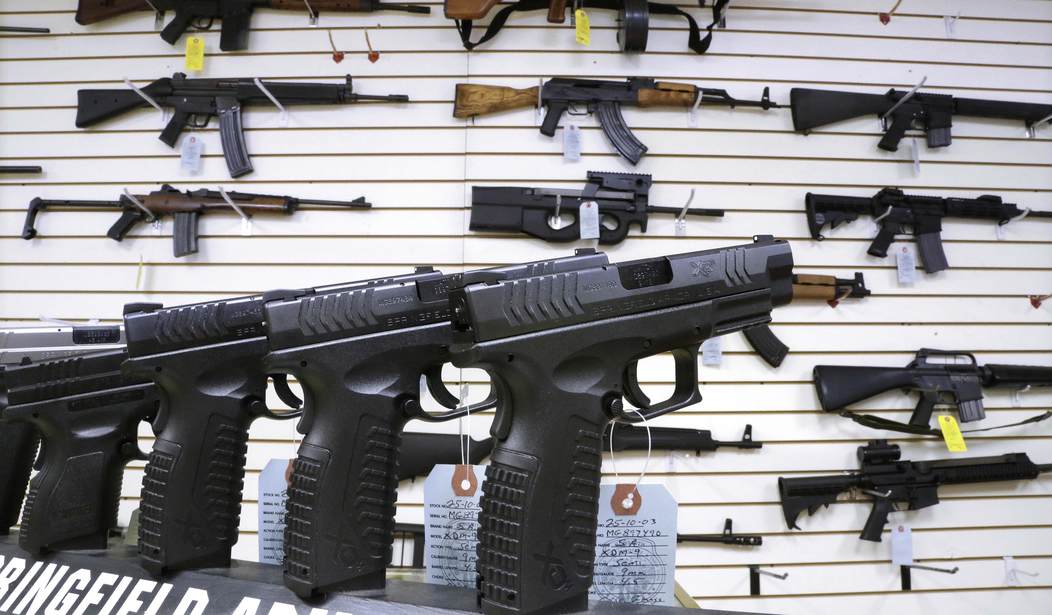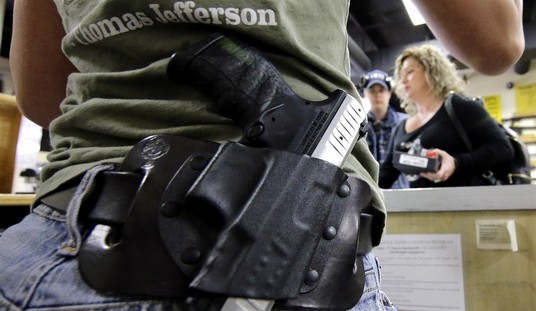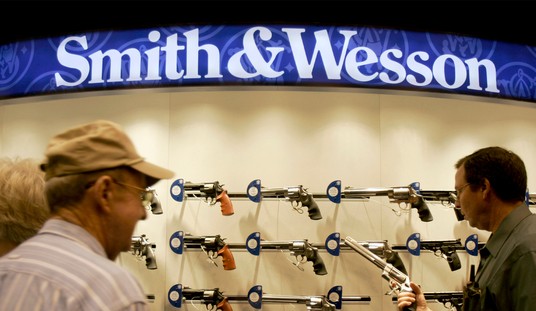Under both federal and Nebraska state law, in order for someone to be prohibited from purchasing or possessing a firearm because of mental health concerns there needs to be an actual adjudication, either from a judge or the state’s Board of Mental Health. That’s too restrictive for Douglas County Sheriff Aaron Hanson, who says it’s time for lawmakers to lower the standard and make it much easier for his office to deny someone a permit-to-purchase a handgun.
Hanson points to two incidents in Douglas County in recent years involving individuals who had “documented” mental health issues but were still approved for a purchase permit; a mental health counselor who later took his own life, as well as a 25-year-old who’s accused of randomly shooting a 69-year-old woman on a walking trail in June of this year. The sheriff says those purchase permits should have been denied, but his hands were tied.
“She could’ve been killed. And we need to honor her injury, we need to honor her victimization by trying to fix these laws,” Hanson said.
Hanson told KETV Investigates that in 2021, [Javaris] Henderson called law enforcement multiple times, saying he was either suicidal or had homicidal ideations. At one point, Hanson said Henderson threatened to blow up the FBI. He was placed in emergency protective custody at least five times.
“Emergency Protective Custody is a statutory tool that allows a law enforcement officer or a medical professional to place somebody in temporary custody for up to 72 hours if probable cause exists that they are a risk to themselves or a risk to others,” Hanson said.
According to Region 6 Behavioral Healthcare, between the summers of 2022 and 2023, there were 1,552 instances where someone was placed in emergency protective custody in Douglas County.
Hanson said if someone has been put in emergency protective custody, the law does not prohibit them from having a handgun firearm. That’s why when Henderson went to the Sheriff’s Office to apply for a handgun purchase permit, they legally had to accept the application.
“This is a big glaring loophole in state law, in my opinion,” Hanson said.
And in my opinion Hanson is way off base. Taking someone in for a 72-hour mental health evaluation is pretty easy, all things considered. And according to KETV, just 10% of the cases that come before the state’s Board of Mental Health result in a formal adjudication of mental illness and a prohibition on gun ownership. Should the Board of Health be adjudicating more individuals? Possibly, though it’s impossible to know without looking at specific cases, but Hanson’s proposed “solution” would be a dramatic infringement on the rights of Douglas County residents.
“I’m very nervous about that 90 percent, that was obviously, at risk enough to become engaged in the board of mental health process and have a board of mental health warrant filed against them, and taken into custody for that, but ultimately can walk out of that process while retaining their full firearms procession and purchase rights,” Hanson said.
The Republican said it’s time for those in the state legislature to take a closer look at all possible solutions when it comes to guns and mental health.
“I think that we can save lives. We can prevent suicides, and I think in doing so, we can help preserve our Second Amendment rights as well,” Hanson said.
… One solution Hanson has is for state law to create a “time-out” or waiting period before someone in emergency protective custody can get a handgun purchase permit. During that waiting period, Hanson said a mental health professional should assess whether it’s safe for the person to have a firearm.
How exactly does that “preserve” our Second Amendment rights? It sounds like what Hanson is calling for is a “red flag” law that offers even less due process protections than the usual Extreme Risk Protection Order process.
A mental health professional is already supposed to determine whether someone poses a danger to themselves or others as part of the 72-hour emergency hold, so a separate assessment to determine whether someone should have a firearm sounds duplicative at best.
If the Board of Health is giving the green light to individuals who actually should be in an institutional setting because of their dangerousness, the answer isn’t to block them from obtaining a permit-to-purchase a handgun. After all, they’d still be free and clear to purchase a long gun, not to mention use a knife, rope, gasoline, or any variety of household objects to harm themselves or others. What Hanson should really be demanding is an increase in the number of inpatient beds for mental health patients in Nebraska, especially since many jails around the state are currently housing mentally ill inmates who are waiting for space to open up at a state-run facility.
“I don’t think society is being served well,” Lancaster County Public Defender Joe Nigro said. “Those individuals certainly aren’t being served well.”
Per state law, when a judge finds a defendant incompetent to stand trial, they’re supposed to start receiving treatment from the Department of Health and Human Services. Historically, that treatment has been at the Lincoln Regional Center.
“There was a time in my career where a person found incompetent, the judge would send them to the Regional Center that day,” Nigro said. “Now we have people waiting months.”
In 2021, the Lincoln Regional Center admitted just under 100 such individuals and among that group, they waited for a bed at the Regional Center for an average of 128 days each, or just over four months.
In that time, they’re sitting in county jails across the state.
“These are people with severe mental illness and the increase in numbers in our facility have strained our mental health resources,” said Brad Johnson, the director of the Lancaster County Jail.
Johnson said the Lancaster County Jail isn’t set up to treat people in this condition, and at times, the growing list has pushed the jail past capacity.
As of the reporting of this story, there were 16 people waiting in the Lancaster County Jail to go to the Regional Center. Among them, their average wait time was 58 days. The inmate waiting the longest has been waiting 131 days. In January, jail data shows the average wait time was nearly 100 days.
These are individuals who’ve already been deemed incompetent by a court, and they’re still waiting more than three months, on average, before they are sent to a mental health facility to receive treatment. You don’t think that has a spillover effect on people like Javaris Henderson or those who exhibit warning signs but have not been charged with any crime?
I think the sheriff’s heart is in the right place, but that doesn’t mean he’s come up with a good idea. If the goal is saving lives then a gun control solution like denying someone a permit-to-purchase (which is itself a constitutionally dubious idea) because they’ve been placed in a 72-hour mental health hold isn’t gonna cut it. Like every other state in the nation, Nebraska is in dire need of serious structural reforms to its mental health system, and that starts with ensuring there’s enough space to house those who truly pose a threat to themselves and others.









Join the conversation as a VIP Member